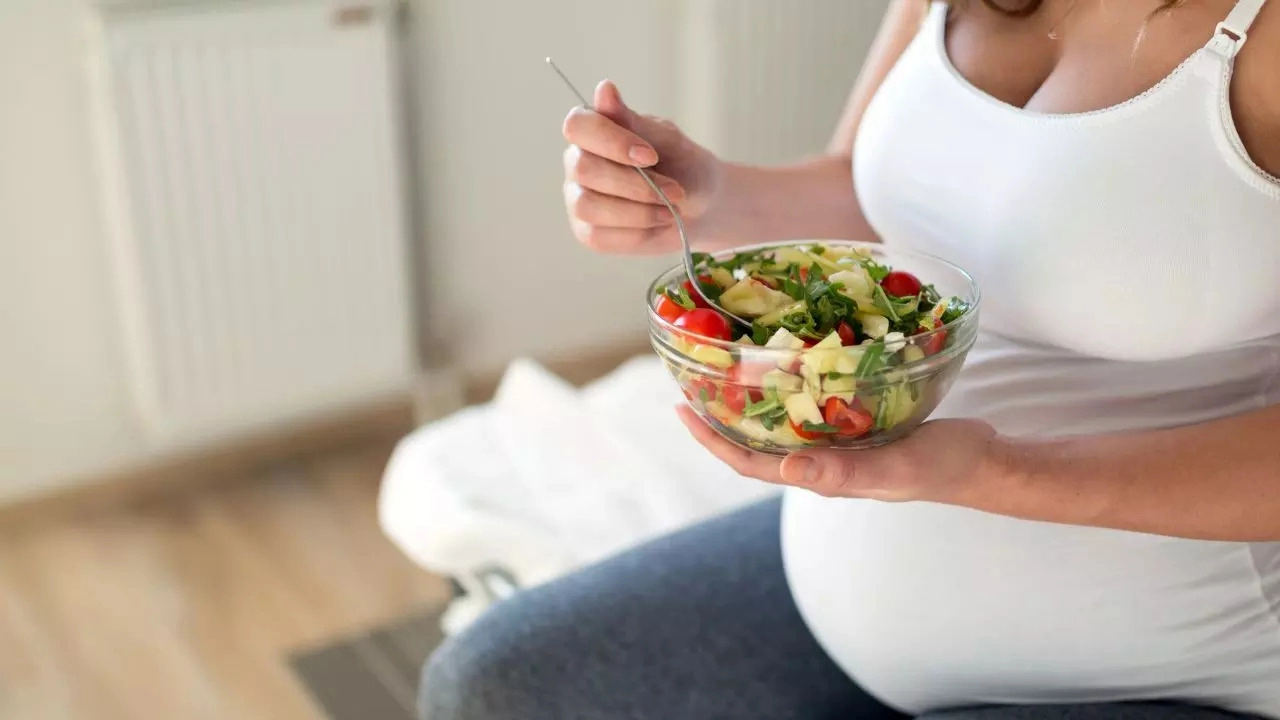Debosmita Ghosh • 07 Sep 2024
Nutritional Needs During Pregnancy: Here’s What Pregnant Women Need To Eat For Maternal and Foetal Health

Know What Pregnant Women Need To Eat For Maternal and Foetal Health
Women have several nutritional needs at different points in their lives. This is usually because they undergo several physiological changes at different stages in their lives such as childhood, adolescence, reproductive years, pregnancy, lactation, menopause and post-menopause. Each of these stages has a nutritional need of its own as these nutrients help to manage overall health and well-being.
Speaking to Times Now, Dr. G Poornima, IVF Specialist at Ferty9 Fertility Center, Karimnagar, Telangana shares the nutritional needs of women during pregnancy. She says that pregnancy significantly alters a woman’s nutritional requirements. Proper nutrition during pregnancy is vital for foetal development, maternal health and the prevention of pregnancy-related complications. “It is crucial to focus on a balanced diet that provides adequate amounts of vital nutrients to meet the increased demands of pregnancy.”
Nutrition Requirements During The First Trimester (Weeks 1-12)
The first trimester is a critical period that is characterised by rapid foetal development, particularly the formation of the neural tube, which later becomes the baby’s brain and spinal cord. Nutritional needs in this stage are focused on supporting these early developmental processes.
Folic acid is the most important nutrient during the first trimester; a daily intake of 400-800 micrograms is recommended to prevent neural tube defects such as spina bifida.
Iron is also necessary during this period, with a recommended intake of 27 mg per day to support the increased blood volume and prevent anaemia. Iron-rich foods such as leafy greens, legumes, fortified cereals, and lean meats are highly recommended.
Vitamin B6 helps manage morning sickness which is a common symptom in early pregnancy, while vitamin D is necessary for bone health for both the mother and the developing foetus.
Iodine plays an important role in foetal brain development and a deficiency can lead to cognitive impairments. Healthy fats, especially omega-3 fatty acids, support brain and eye development in the foetus and can be sourced from flaxseeds, walnuts and fatty fish.
Nutrition Requirements During The Second Trimester (Weeks 13-26)
The second trimester is focused on the growth of the foetus, the development of vital organs and the formation of bones and muscles.
During this stage, calcium becomes particularly important with a recommended daily intake of 1,000 mg to support foetal bone and teeth development. Good sources of calcium include dairy products, green leafy vegetables, and fortified foods.
Protein needs also increase during this period to support the rapid growth of foetal tissues, including the brain; a daily intake of 71 grams is recommended. Lean meats, eggs, dairy, legumes and nuts are excellent protein sources.
Iron remains important to prevent maternal anaemia and ensure adequate oxygen supply to both the mother and the foetus. Vitamin A with a recommended intake of 770 micrograms per day supports cell growth, immune function and foetal development. Magnesium is also important during the second trimester as it helps to relax the muscles and prevent leg cramps.
Nutrition Requirements During The Third Trimester (Weeks 27-40)
The last trimester is characterised by rapid foetal growth, fat accumulation and preparation for birth. Nutritional needs continue to be high, with a focus on supporting this growth and preparing the mother’s body for labour and delivery.
Iron and protein continue to be crucial for foetal growth and the mother’s increased blood volume.
Vitamin C with a recommended intake of 85 mg per day helps in iron absorption and immune support; citrus fruits, strawberries and bell peppers are good sources.
DHA which is a type of omega-3 fatty acid becomes even more important in the third trimester for brain development, with a recommended intake of at least 200 mg per day.
Fibre intake should be maintained at around 28 grams per day to prevent constipation which is common during the third trimester. Adequate hydration, approximately 3 litres per day is also important for maintaining amniotic fluid levels and preventing urinary tract infections.
Get Latest News Live on Times Now along with Breaking News and Top Headlines from Health and around the world.